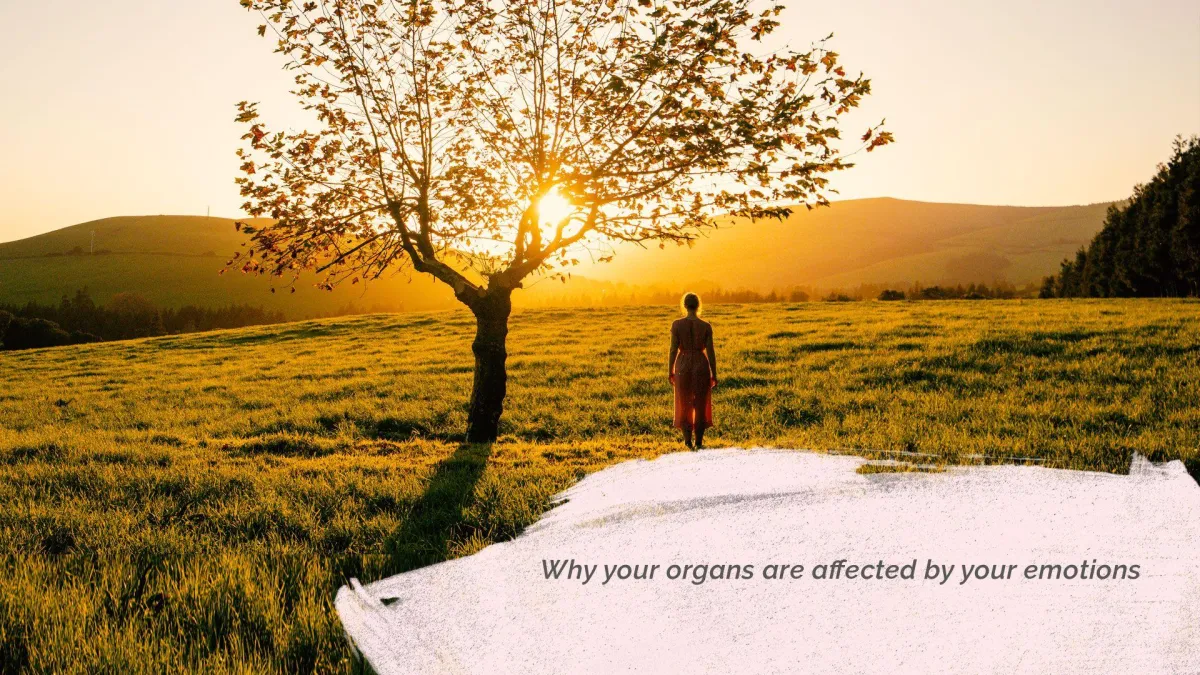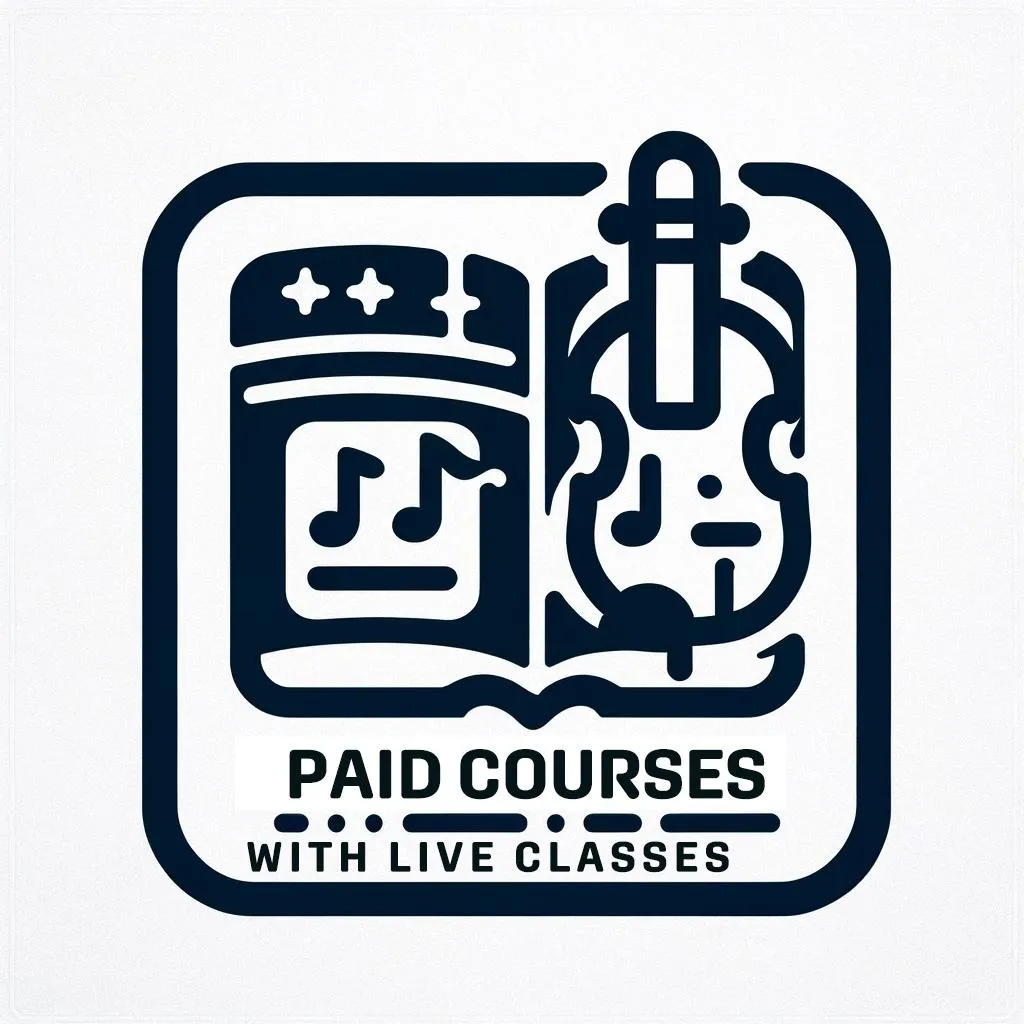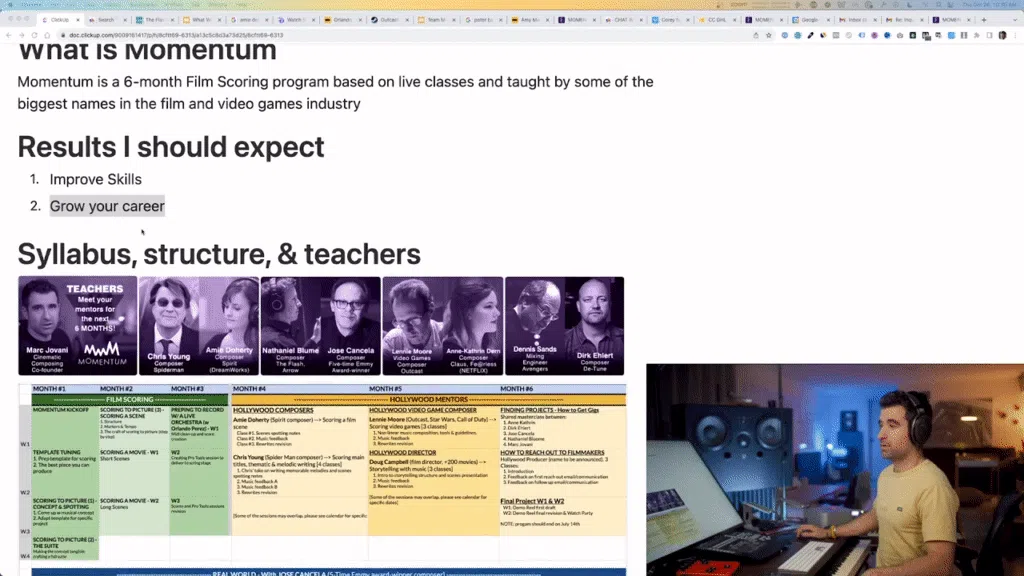Últimos Artículos

Why your organs are affected by your emotions
Do you know the direct correlation between your emotions, thoughts, and perceptions of the world and how they affect your body?
Your body is the most valuable tool you have for interacting in this physical plane of reality, we’ve been talking about this in the last articles, and it is a reflection of your mental and emotional health.
Such is its importance, that if you have a body that is not healthy, you will not be able to fully enjoy anything that you achieve or have in life.
----
Really quick: there are actually 3 ways to enjoy this article:
1. Watch this YouTube video:

2. Listen to this episode of the You Are All You Need podcast (available on any podcast streaming service)
3. Continue reading this article :)
....
Through your body, you are capable of enjoying the world surrounding you and having a human experience.
This is the physical part of your inner self, the representation of your inner self here on Earth, and it is your function to look after it to enjoy this terrestrial experience to the maximum.
Doing exercise, resting, eating healthily, having a good time, and having positive thoughts and emotions are key aspects that define the basis for a healthy body.
In fact, positive thoughts and emotions along with your lifestyle are the most important things in your physical health.
To a large extent, the correct functioning of your internal organs depends on the actions that you do continuously in your day-to-day and the emotions, thoughts, and beliefs you have.
Your organs compile the information they receive to assist you in evaluating and making decisions.
And, it is very important to be aware of what information you are sending to your body, and specifically to your organs because it is through these stimuli that they react and help us act in this perceived reality.
It is okay to feel frustration, rage, nervousness, or fear at times because perhaps these emotions help us to improve certain aspects of ourselves or even face certain obstacles.
However, it is best not to maintain these types of negative emotions for too long as they generate a series of chemical reactions in your body that cause an increase in acidity and this triggers the alarm state in the body segregating adrenaline and cortisol and sending them to different parts of the body, placing your organs on alert.
In short, this state prepares you for fight or flight.
It places you on total alert in the event of a situation that you perceive as a threat.
This type of physical response is innate and its purpose is your survival.
However, this physical state places your body in a situation that takes it out of its natural balance weakening your immune system, along with other consequences.
Our body is prepared to assume this type of alarm response, but not to live in this state continually.
If this happens, physical problems may begin to appear, such as ulcers, digestive problems, anxiety, etcetera. That’s why it is very important to regain calm and balance in your body after you’ve experienced this alarm state in your body.
You are capable of harming your physical body if you constantly store toxic thoughts and emotions in your mind.
Deepak Chopra said it very clearly in his book Journey into Healing, when he highlighted that we are the only creatures on Earth who can change our biology through how we feel and think.
This is our great power, largely asleep and hidden behind a society that constantly restricts our search for answers and solutions outside, taking away the great internal power that every one of us has inside to achieve our well-being.
What Chopra said in his book is something that is demonstrated through epigenetics, the science that studies the interactions between genes and the environment surrounding them.
The term ‘epigenetic’ was coined in 1942 by the embryologist and geneticist, Conrad Hal Waddington, and then expanded upon by a multitude of cellular biologists, such as the internationally renowned Bruce Lipton.
Epigenetics scientifically shows us that our DNA is not what determines our cellular behavior.
In other words, we are not the victims of our genes, but rather our DNA can be modified depending on the environment to which it is subject.
This environment in which it moves is created by our perceptions of the external signals, in other words, what we interpret and think of what is happening to us or around us.
Our genes adapt their expression depending on the stimuli we give them.
Those stimuli which are a consequence of our external perceptions, are internally interpreted as thoughts and emotions, and finally physically transferred as electromagnetic charges carrying this information to all the cells in our body, and with that, the behavior and expression of our genes are determined.
So, if those stimuli received by our cells are negative and toxic, our cells will sicken because it is simply what they are receiving from the outside and they will do whatever is necessary to align with that environment.
Epigenetics demonstrates that those who are ultimately responsible for our health and well-being are ourselves every time we decide to create a negative environment or a positive environment through thoughts, emotions, and perceptions of ourselves and about what is happening to us in life.
The significance of this discovery regarding the expression of our genes and the response of our cells is profound. It suggests that just as negative thoughts and emotions can create a toxic internal environment leading to illness, we also have the power to enhance our health and well-being by consistently transforming those negative thoughts, emotions, and beliefs into positive ones.
If our cells begin to receive stimuli with a high vibrational frequency, such as joy, love, tranquility, peace, and so on, they will begin to find ways to match this new environment, once again changing their behavior, recovering, and evolving positively with a direct effect through an increased level of well-being and physical health.
....
Ready To Upgrade?
➡️ If you enjoyed this article, you’ll find a much deeper analysis on how to start living a life full of passion and purpose in my book You Are Already Everything You Need
➡️ Click here to download the first four episodes of my book for free
➡️ Join the 20-Day Challenge in my podcast You Are All You Need and start walking together this journey of self-transformation
Política de Cookies
Última actualización el 07 de Mayo 2024
1. ¿Qué son las cookies?
Las cookies son archivos de texto que se almacenan en tu navegador o dispositivo cuando visitas un sitio web. Son ampliamente utilizadas para que los sitios web funcionen o lo hagan de manera más eficiente, así como para proporcionar información a los propietarios del sitio.
2. ¿Qué tipos de cookies utilizamos?
2.1. Cookies propias
Estas son las cookies que establecemos directamente y que se utilizan para identificar tu comportamiento en nuestro sitio web y mejorar nuestros servicios.
2.2. Cookies de terceros
Estas son cookies establecidas por dominios distintos al nuestro. Utilizamos cookies de terceros para recopilar estadísticas y ofrecer publicidad personalizada.
2.3. Cookies de sesión
Son cookies temporales que se eliminan cuando cierras tu navegador. Nos permiten vincular tus acciones durante esa sesión en particular.
2.4. Cookies persistentes
Son cookies que se almacenan en tu dispositivo hasta que caducan o las eliminas. Nos permiten recordar tus preferencias o acciones en múltiples sesiones de navegación.
3. ¿Para qué utilizamos las cookies?
3.1. Cookies técnicas
Estas cookies son esenciales para que puedas navegar por nuestro sitio web y utilizar sus funciones. Sin estas cookies, los servicios que has solicitado no se pueden proporcionar.
3.2. Cookies de personalización
Estas cookies permiten que nuestro sitio web recuerde tus elecciones, como el idioma o la región en la que te encuentras, y proporcionan características mejoradas y más personalizadas.
3.3. Cookies de análisis
Estas cookies, ya sean nuestras o de terceros, recopilan información sobre cómo usas nuestro sitio web, como las páginas que visitas o los errores que puedas encontrar. Usamos esta información para mejorar el rendimiento de nuestro sitio.
3.4. Cookies publicitarias
Estas cookies se utilizan para hacer que los mensajes publicitarios sean más relevantes para ti. Pueden limitar el número de veces que ves un anuncio, así como ayudar a medir la efectividad de una campaña publicitaria.
3.5. Cookies de redes sociales
Estas cookies son establecidas por servicios de redes sociales que hemos añadido al sitio para permitirte compartir nuestro contenido con tus amigos y redes.
4. ¿Cómo puedes controlar las cookies?
Puedes controlar y/o eliminar las cookies según desees. Puedes eliminar todas las cookies que ya están en tu dispositivo y puedes configurar la mayoría de los navegadores para evitar que se instalen. Sin embargo, si haces esto, es posible que tengas que ajustar manualmente algunas preferencias cada vez que visites un sitio, y es posible que algunos servicios y funcionalidades no funcionen.
4.1. Controlar las cookies en Google Chrome
Abre Chrome.Haz clic en el menú de configuración y selecciona "Configuración".En la sección "Privacidad y seguridad", haz clic en "Configuración de sitios".Selecciona "Cookies y datos de sitios" y elige tus preferencias.
4.2. Controlar las cookies en Mozilla Firefox
Abre Firefox.Haz clic en el menú de configuración y selecciona "Preferencias".Selecciona "Privacidad & Seguridad".En la sección "Cookies y datos del sitio", elige tus preferencias.
4.3. Controlar las cookies en Safari
Abre Safari.Selecciona "Preferencias" en el menú de Safari.Selecciona "Privacidad".Selecciona "Bloquear todas las cookies" o personaliza tus preferencias.
4.4. Controlar las cookies en Microsoft Edge
Abre Microsoft Edge.Selecciona "Configuración" en el menú de Edge.Selecciona "Privacidad, búsqueda y servicios".En la sección "Bloquear cookies", elige tus preferencias.
5. Cambios en la Política de Cookies
Podemos actualizar esta Política de Cookies para reflejar, por ejemplo, cambios en las cookies que utilizamos o por otras razones operativas, legales o normativas. Por favor, revisa esta Política de Cookies regularmente para estar informado sobre nuestro uso de cookies y tecnologías relacionadas.
6. Contacto
Si tienes alguna pregunta sobre nuestra Política de Cookies, puedes ponerte en contacto con nosotros enviando un correo electrónico a [email protected].
Equipo
FREE Composing Academy
We care about our students and we provide the best Free courses in the whole world
Paid Courses
We have a collection of paid courses, here you'll find excellent content + live weekly classes

Para preguntas de soporte, por favor contacta con [email protected]
Copyright © 2026• Evolucionando • Una marca de Cinematic Composing LLC • Todos los derechos reservados • Lake Forest, CA








